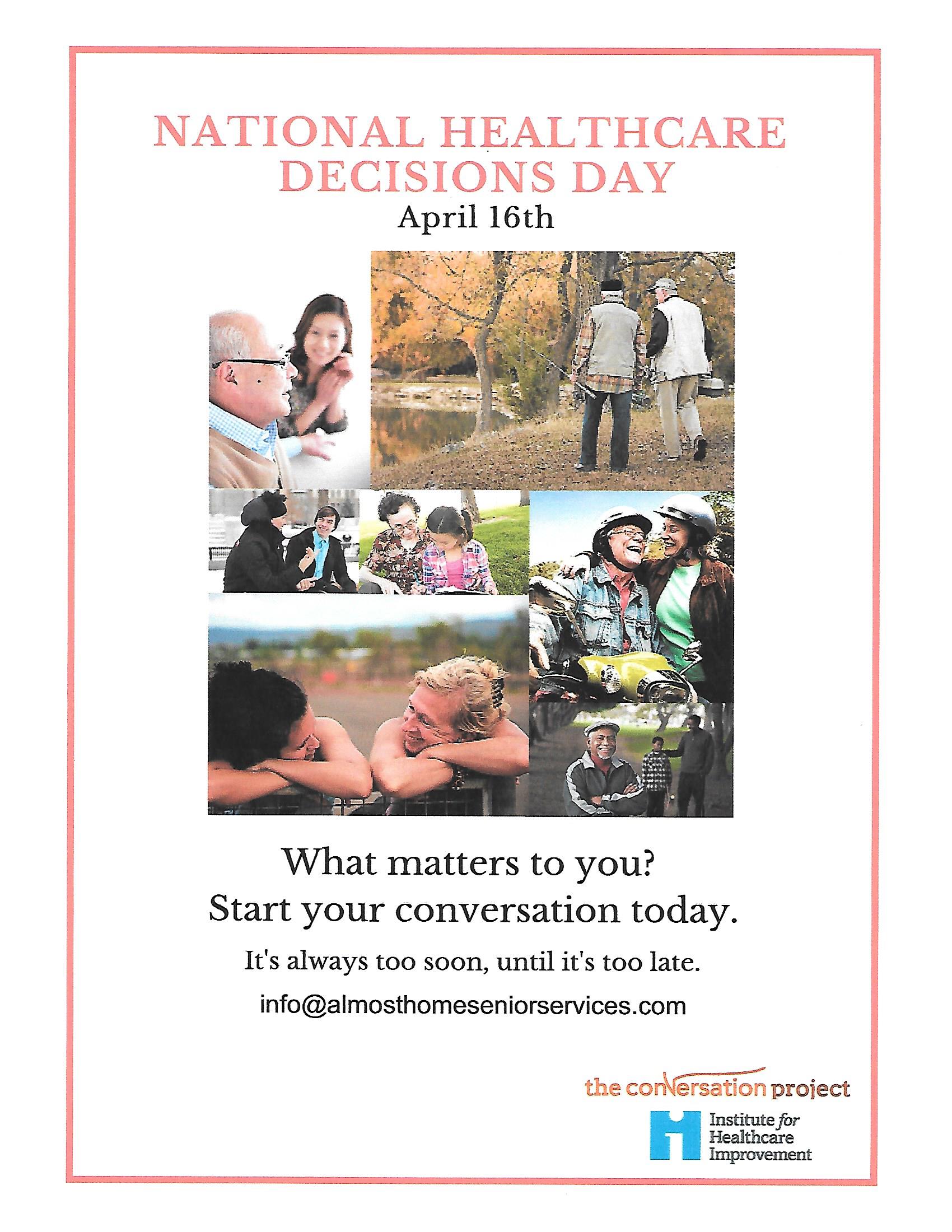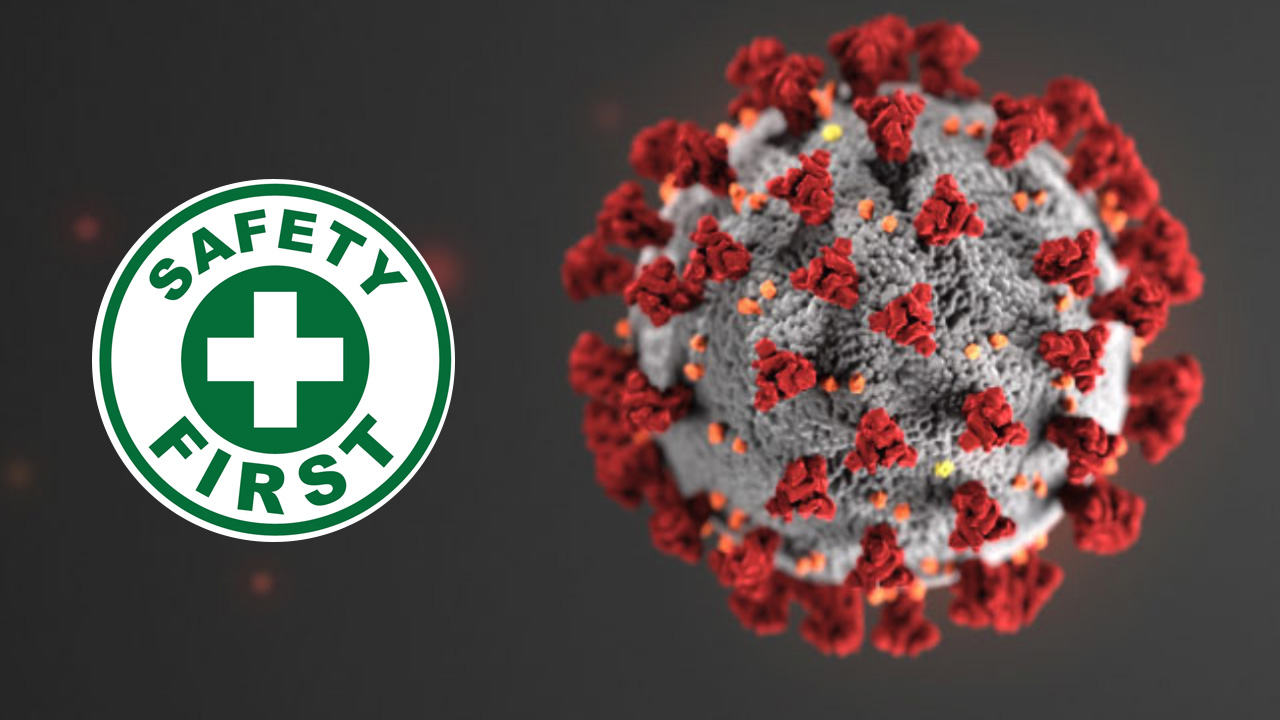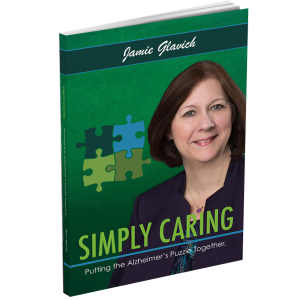April 16th is National Healthcare Decisions Day and all Americans are encouraged to ensure that their future healthcare choices are known and protected. The process does not take long, and it is free. This is something I have done for myself. I hope you will join me in this movement.
What if something happened to you and you were unable to make your own healthcare decisions? Who would you trust and love enough that could make decisions on your behalf?
An advance directive is a legal document that tells healthcare providers who will speak to medical decisions for you and what treatments you would want or not want at that time. I believe we all should protect our wishes in this way, so I encourage you to complete an advance directive before a crisis happens and more importantly to be prepared.
For those of us that are healthy at the moment, an advanced directive is simply appointing a health care surrogate. Planning may be more complex for someone with advanced illness or juggling a lot of life issues. By taking Advanced Care Planning in steps, we can accomplish, together, a plan in the event that something does incapacitate you. I suggest taking it one step at a time.
Sharing your wishes for your health care can bring you closer to the people you love and who love you. Making your wishes known can be critically important if you are ever incapacitated. “One conversation can make a difference.”
Download A Complimentary Advanced Care Preparation Kit »
- 21% of people say they haven’t had the conversation because they don’t want to upset their loved ones.
- 53% say they’d be relieved if a loved one started the conversation.
- 32% have actually had a conversation.
- 97% of people say it’s important to put their wishes in writing.
- 37% have actually done so.
Step One: Start the Conversation
Ask the person that you would like to designate, by saying “I need your help with something.” I was thinking about what happened to ________ and it made me realize I had not made any plans. I need to plan for the future, and I need your help.
Some things to talk about during your conversation:
- Where do you stand health wise?
- Who do you want or not want to be involved in your care?
- Who would you like to make decisions on your behalf if you are not able to?
- Are there any important milestones you’d like to be there for?
- Where do you want to receive care? (Hospital, Nursing Home, Acute Care Hospital – feel free to discuss which ones by name)
- Are there any kinds of treatments you would want or not want?
- When would it be okay to shift from a curative care to a focus on comfort care alone?
Once you have the agreement of the person to be your health care surrogate, know that life changes and nothing is set in stone. You and your loved ones can always change your minds as circumstances change. Remember this is just the beginning of many conversations to come. You don’t have to cover everything and everyone at once.
Step one is done.
Step Two: Fill out the document and put your desires in writing.
Are you willing to be part of the movement that puts your wishes in writing and appoints a health care surrogate to voice your wants if you can’t?
Contact me at Almost Home and I will help you take the second step to complete a health care surrogate document.
Once completed, you will be at ease knowing there is someone who will watch over you in case you need that special person when you can’t speak for yourself in a health care crisis.
Download Your Free Preparation Kit »
– Jamie Glavich, Founder of Almost Home Senior Services





